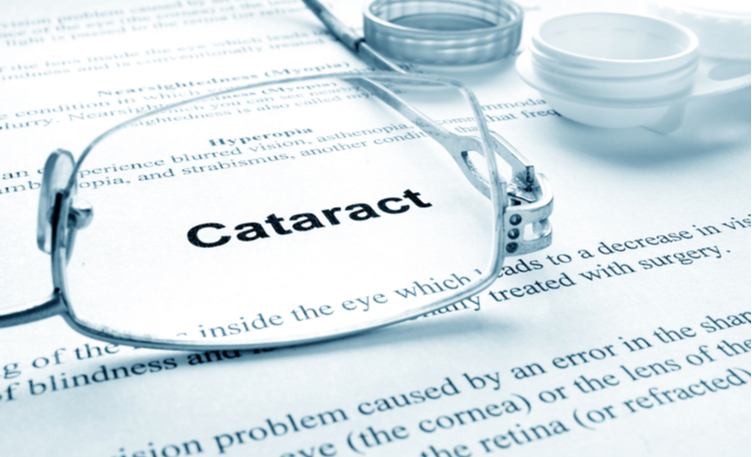All You Need To Know About Cataract Surgery

Cataract is a common condition that affects older adults making their vision cloudy or blurry and it develops when protein builds up in the natural lens of the eye. This keeps light from passing through clearly and makes the vision foggy. If cataract goes untreated, it can even lead to loss of vision.
If the vision can be corrected with glasses or contact lenses, your ophthalmologist will give you a prescription. If it can’t be mended and the cataract is affecting your daily life, then the doctor will suggest surgery. In earlier times, cataracts used to be operated only when they attained maturity, however, with newer technologies, the cataracts are crushed inside the eye so it is much easier & safer to get cataract surgeries done much earlier.
What Is The Duration Of The Cataract Surgery?
Cataract surgery is usually done on an outpatient basis, where the surgeon removes the cloudy lens and replaces it with a clear man-made lens. Cataract surgeries are short and uneventful, as long as you’re in good health and you don’t have major eye problems. An uncompleted cataract surgery takes no longer than 5 to 10 minutes to perform. However, immediately after the surgery, you will be required to rest in the recovery area until the effects of anaesthesia wear off. The entire process typically takes about 20 minutes to an hour.
What Happens During A Cataract Surgery?
A week or two before your procedure, your doctor will measure the size and shape of your eye. This is done in order to choose the best artificial lens for you. You may take normal meals before your surgery
Before surgery starts, a local anaesthetic drop will be used to numb your eye. Most surgeons do not use any injections for cataract surgeries. Your surgeon will make a tiny incision in the front of the eye called cornea, sometimes with the help of a Femtolaser. Through this, he/she will insert a small tool to break up the cataract and gently suction it out. Finally, the new lens will be inserted and your eye will be left open without any bandage or dressing.
What Are Some Of The Preliminary Precautions?
After your surgery, you will require someone to drive you home as you will be advised against driving at least for the first day as the pupils remain dilated after the surgery. There is no need to use protective or dark glasses.
Most people are allowed to get back to their routine activities within a few hours after the surgery. The only precaution recommended is to protect the eyes from directly splashing water into the eyes as water is mostly contaminated. One is fit enough to resume all activities by the next day.
What Is The Recovery Process Post-Surgery?
Typically, your cataract surgery recovery should be complete in about a few days and your eye should be completely healed.
It is completely normal to experience cloudy, blurry or disoriented vision just after surgery drops are used to dilate the pupils.. It can take some time for the visual system to adjust to the removal of the cataract and adapt to the new intraocular lens used to replace your eye’s natural lens.
During this adaption period, some patients may report experiencing wavy or distorted vision. This is a normal phenomenon and should last only a few hours. Some patients may also develop red and bloodshot eyes because of temporary damage to blood vessels in the surface of the white of the eye during cataract surgery. As your eye heals, the redness should dissipate very quickly within several days.
Some patients even complain of dry eye or scratchiness after the surgery. These sensations are related to the lubrication of the eye & should subside as your eye heals. This should also fade after a few days.
Many people report clear and concise vision within several hours after the surgery. But each person heals differently, and some may need as long as a week or two before you can focus and see images clearly.
You will have to follow up with your cataract surgeon the day after the procedure. If you don’t notice any improvement in your blurry vision or you feel eye pain despite the pain medications in the days following this visit, you should report this to your surgeon.
How to Have a Successful Recovery?
Many people are able to resume normal activities even the day after the cataract surgery. However, you should observe a few precautions during the first week, to make sure you avoid developing an infection or sustaining an injury to the eye while it heals.
Your ophthalmologist will prescribe antibiotic eye drops to prevent infection and anti-inflammatory eye drops to reduce any internal inflammation. You will need to use the eye drops several times daily, as prescribed, for several days during your cataract surgery recovery.
Oral pain relief medications may be prescribed rarely for the first few days after the surgery in the case of pain and discomfort.
For a safe and speedy cataract surgery recovery, follow these tips:
- Don't drive for the first few days especially if the other eye has a cataract.
- Avoid exposure to irritants such as dust, pollen and other allergens during the first few weeks after surgery.
- Don't rub your eye with dirty fingers at any cost.
- Avoid taking a shower or splashing any water into the eyes.
Follow your doctor’s instructions when it comes to wearing your protective shield, taking your medications and applying eye drops. These instructions will be given to you right after your surgery.
If you need cataract surgery in both eyes, your surgeon usually will wait at least a few days for your first eye to recover before performing the procedure on the second eye. In most cases the other eye is operated upon very quickly to ensure binocular vision.






